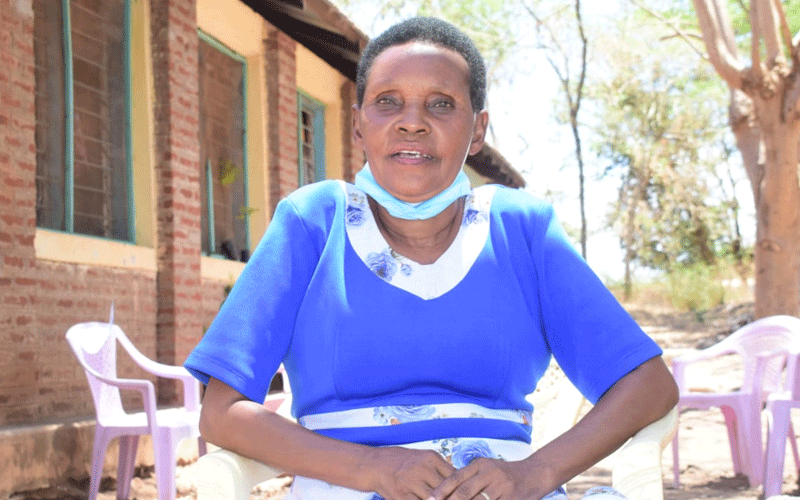Changing the narrative on disability
By Manuel Ntoyai, November 23, 2020Manuel Ntoyai @Manuel_Ntoyai
At age six, Agnes Musembi, born and raised in Emali in Makueni county, was bitten by a venomous snake, and eventually caused her disability. Life as she knew it changed.
She had to face a number of challenges, especially at school in Ndunduni Primary School and Mulala Secondary School.
“Some teachers didn’t seem to understand my situation. The language around me was also negative; people referred to me as Kiwete while others thought since I was disabled, I couldn’t perform well in school,” she says.
After completing her O levels in 1978, she worked with the then Kenya Post and Telecommunication Corporation and got married.
When an opportunity to go back to school arose, she took it and studied community based development, and a number of courses on disability.
In 1999, when she was working with Amref as a volunteer, she was among the founders of the Kibwezi Disabled Persons Organisation, for which she is the project coordinator.
“We started with seven members and now we have 2,700 members. We primarily wanted to fight the stigma associated with disability in a place where culturally it is associated with bad omen.
We wanted people to know that disability is not inability and that kids too should have an opportunity to learn and help make the world a better place,” she said in an interview with People Daily.
At first, the work was not easy as some parents chose to hide their children and did not want to be associated with the group.
For them, disability is nothing, but shame. But this did not deter Agnes and her group from spreading their gospel.
Bypassed and dismissed
“We used to have a rough time facing parents, but we would find a way to talk to them and let them know there are institutions that could help their children.
Some wouldn’t listen to us, questioning how a person with disability could lead other disabled people,” she says.
The other challenge was getting disabled people involved in important decision making processes, from family level to national issues.
“Most people with disability are never invited to family meetings. When it comes to inheritance, they are also bypassed or just dismissed.
These are some of the issues that made us come together to start the group and educate the community,” she adds.
The group has formed a network of people with disability, whose committees start at village level up to county level.
They are also represented in every county committee, which has given them a platform to work with the county government.
“We are working with other stakeholders to ensure our members are freed from the dependency syndrome.
We have and will continue building capacities for both individual and organisational levels, to ensure we can do what others are doing. We want to live a normal life,” she states.
Justice in courts
Some of their activities include working with small groups, which run table banking schemes and small businesses to support themselves, with the larger group playing advisory and monitory roles.
“We have organised for them business workshops to enhance their financial skills and how to use technology to boost their businesses.
We also teach them about making detergents and liquid soaps, which they sell on wholesale and also retails,” she adds.
At the moment, however, Agnes is on another course, advocating for cases of sexual abuse of disabled people to be treated with the respect they deserve.
“Most of those who have mental disability cannot say in person what has been done to them and we have to rely on second person.
In court, you have to represent yourself or through a lawyer, which is expensive for us, and this has always led to some of these cases being dismissed or withdrawn,” she says.
Agnes adds that continued efforts are needed to help build more capacity for the judiciary to be able to listen to such cases as there are different forms of disabilities, which should be treated differently.
“I want to plead with the Judiciary to help change this and we are open for discussion on how we can together help these victims get the justice they deserve,” she says.
